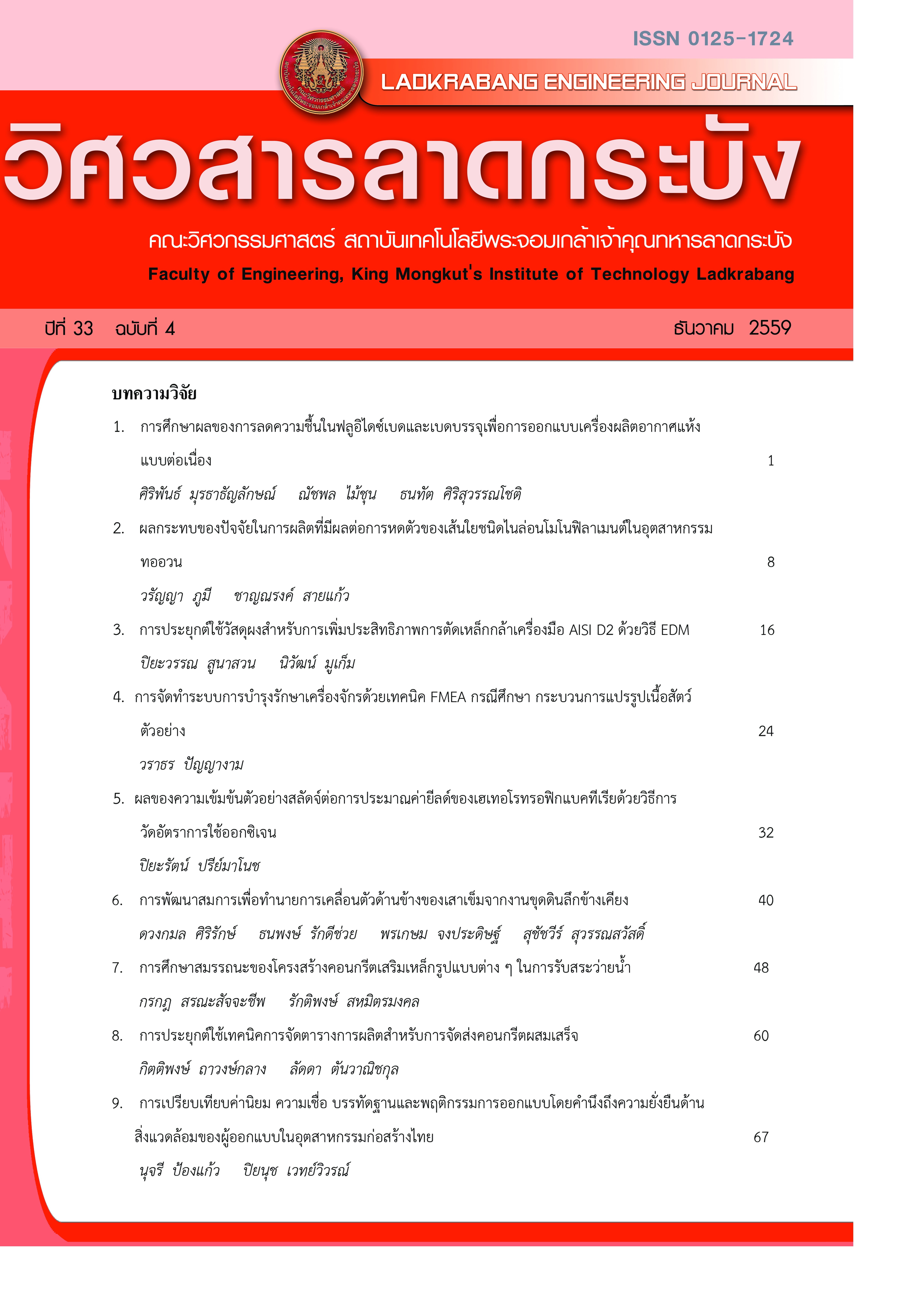Comparison of Value, Belief, Norm and Sustainable Design Behavior of Designers in Thai Construction Industry
Keywords:
Green design behavior, Biospheric value, Ecological worldview belief, Design green building, Architects and engineersAbstract
The study aims to compare the difference of values, beliefs, norms and sustainable design behavior between designers who had experience in green building design and designers who had no such experience using Value-Belief-Norm Theory (VBN). One-way ANOVA was used to analyze 430 sets of questionnaire sent out to designers in Thai construction industry. The results showed that the designers with green building design experiences have higher biospheric value, ecological worldview belief and green norm than designers without green building design experiences at a significance level of 0.05. Moreover, the designers who have more than 10 years of working experience were found to have higher altruistic value and also higher awareness of consequences than the designers with less than 10 years working experience. It was found that the designers who have both green building design experiences and also have more than 10 years of working experience, have higher sustainable design norms and behaviors.
References
[2] Western North Carolina Green Building Council, [online]. Available: http://www.wncgbc.org/about/importance-of-green-building/.[August 16, 2016]
[3] M. Teo and M. Loosemore, “A theory of waste behaviour in the construction industry”, Australia,2001
[4] Role of Structural Engineers in the Warming Globe, [online]. Available: http://www.stbe. Eng.ku.ac.th/. [August 16, 2016]
[5] The Global Environmental Impact of Buildings, [online]. Available:http://www.woodsolutions.com/. [November 30, 2016]
[6] Rohini, “Is Social Psychological Model Sufficient: Empirical Research Gaps For Understanding Green Consumer Attitudinal Behaviour” International Journal of Advanced Research inManagement and Social Sciences ,vol.1 ,2012
[7] H. Choi, J. Jang, J. Kandampully, “Application of extended VBN theory to understand consumers’ decisions about green hotels”, Ohio University, United States,2015
[8] P.C. Stern, “New environmental theories: toward a coherent theory of environmentally significant behavior”, J. Soc. Issues, 56 (3), 2000
[9] J. Adriana and L. Steg, “ Sustainable transportation in Argentina: value beliefs norms and car use reduction”, Argentina, 2013
[10] L. Steg, L. Dreijerink and W. Abrahamse, “Factors influencing the acceptability of energy policies: A test of VBN theory”, Netherlands, 2006
[11] H. Paul, “Situational and personality factors as direct personal norm mediated predictors of pro-environmental behavior: Questions derived from norm-activation theory”, The Hague Police Service, Netherlands, 2007
[12] Thai's Rating of Energy and Environmental Sustainability for Preparation of New Building Construction & Major Renovation [online]. Available: http://www.tgbi.or.th/.[August 16, 2016]
Downloads
Published
How to Cite
Issue
Section
License
The published articles are copyrighted by the School of Engineering, King Mongkut's Institute of Technology Ladkrabang.
The statements contained in each article in this academic journal are the personal opinions of each author and are not related to King Mongkut's Institute of Technology Ladkrabang and other faculty members in the institute.
Responsibility for all elements of each article belongs to each author; If there are any mistakes, each author is solely responsible for his own articles.







